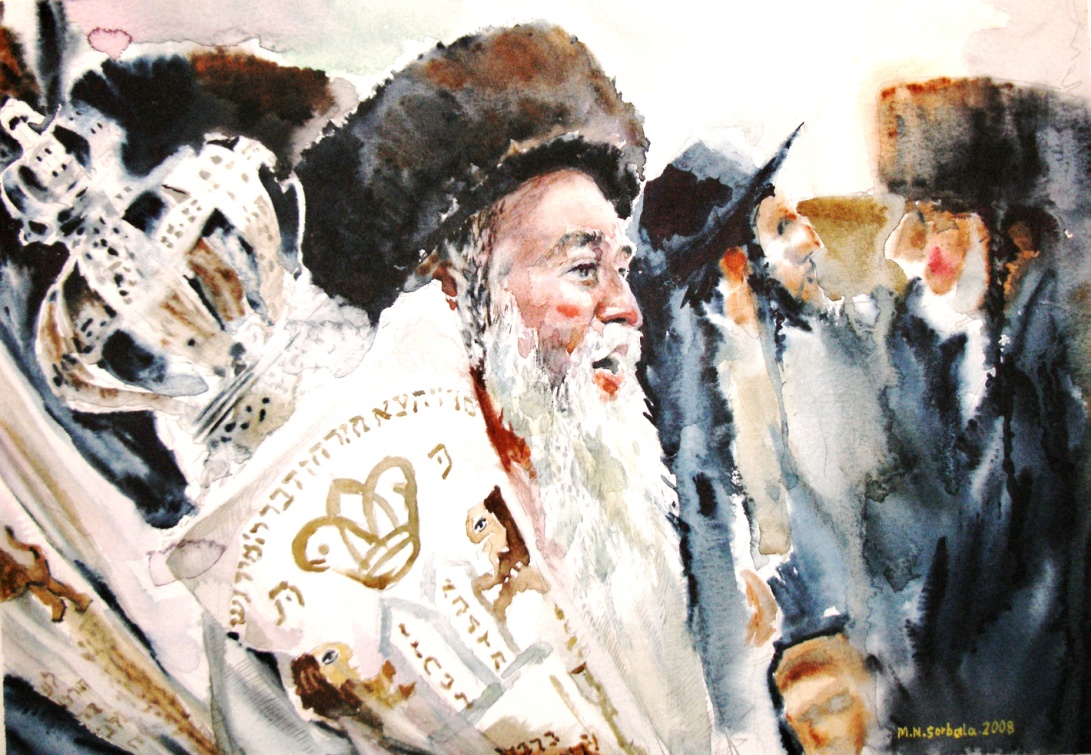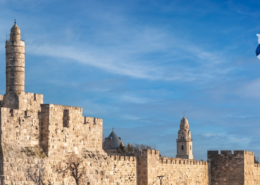SIMCHAT TORAH REJOICING IN GOD’S LAW– Whose Joy?
Simchat Torah is the last in the autumn festival cycle that begins at Rosh Hashanah. It marks the end of the annual cycle of weekly Torah reading and the beginning of a new cycle.
You may ask why we have a holiday to celebrate and rejoice in the Torah (Law) when at Shavuot (the Feast of Pentecost) we celebrate the giving of the Law? Shavuot indeed celebrates the giving of the Law and it celebrates that moment when the children of Israel entered into a covenant relationship with God. It celebrates the Day that Moses went up the mountain to meet with God and the Ten Commandments were given (Ex19-20). However 40 days later Moses returns to find the children of Israel worshipping the golden calf and so he breaks the tablets of stone. It is traditionally believed by the rabbis that it was on Yom Kippur that God granted forgiveness for the sin of the golden calf and that the second set of stone tablets were given and Moses descended from the mountain.
The rabbis call this a celebration our “second chance”; God was so angry over the sin of the golden calf that He was ready to destroy the Children of Israel and create a new nation from the descendents of Moses (Ex32). Moses however begs God not do this and God relents. In Ex 33 we read how God tells Moses to take the people away from Sinai and to strip off their jewellery while He thinks about what to do with them. Moses takes his tent outside the camp and meets with God – and in Deut 9 we read how he intercedes for Aaron and the people, fasting for 40 days. We then read how later God invites Moses up the mountain and renews His covenant with the People.
The rabbis say that the first tablets were like a gift given as a sign of the Covenant but to receive the second set much repentance was needed. They were given in response to Moses intercession and the people’s repentance. They hadn’t appreciated what they had until they lost it. So often it’s only when we lose something that we truly understand its loss.They had lost God’s Presence, His favour and His blessing and were left only with His wrath. What an awful and devastating moment of realization.
The smashing of the tablets was then symbolic of the smashed relationship that needed to be restored. It is said that the two sets of tablets represent the state of the people. At the giving of the first set they were considered as if they were righteous as they had not yet learned God’s Laws or transgressed them. But by the time of the second not only they sinned but they now understood the consequences of sin and separation from the Holy One and had come in repentance.
The rabbis say that repentance is a quality greater even than the righteousness that comes from keeping God’s Torah. This is because repentance reveals our dependence on God, it reveals that we have a relationship that can survive even when we transgress or break His Laws.
We learn from this that God responds to the repentant heart, that His desire for relationship with us and His love for us are greater than His wrath and that He provides a way back for His people to return. As we read on in God’s Word we realise that it is only with God’s help that we can keep His Laws and walk in His ways. God understands the human condition and our struggle for obedience. This is the heart and purpose of the New Covenant that He has made with us through the Messiah Yeshua. (Jesus)
And I will give you a new heart, and a new spirit I will put within you. And I will remove the heart of stone from your flesh and give you a heart of flesh. And I will put my Spirit within you, and cause you to walk in my statutes and be careful to obey my rules. Eze 36:26 -27
If we say we have no sin, we deceive ourselves, and the truth is not in us. If we confess our sins, he faithful and just to forgive us our sins and to cleanse us from all unrighteousness. If we say we have not sinned, we make him a liar, and his word is not in us. 1Jn 1:8-10
For those of us who know Yeshua as our Messiah this day celebrates our “second chance”: our people could not keep the Torah that God gave to Moses, but its purpose was to lead us to the Messiah and this time to have His Law written on our hearts. This day celebrates not the giving of the Torah as we have said already but its place in our lives and in our hearts. It is a reminder that to be truly ‘Torah observant’ we need to be ‘Yeshua observant’- to walk in Yeshua’s ways and to have His Word dwell richly in our hearts.
“Behold, the days are coming, declares the LORD, when I will make a new covenant with the house of Israel and the house of Judah, not like the covenant that I made with their fathers on the day when I took them by the hand to bring them out of the land of Egypt, my covenant that they broke, though I was their husband, declares the LORD. But this is the covenant that I will make with the house of Israel after those days, declares the LORD: I will put my law within them, and I will write it on their hearts. And I will be their God, and they shall be my people. Jer 31:31-33
So Yeshua (Jesus) said to the Jews who had believed in him, “If you abide in my word, you are truly my disciples. Jn 8:31
Simchat Torah challenges us to be followers of God’s Word. The Rabbis teach using Prov 8 especially verse 22 which deals with the eternal nature of wisdom and Psm 104:24 to explain that wisdom was intricately involved in the act of creation and they identify wisdom as being the Torah. They say that “God looked into the Torah and followed its wisdom in the act of Creation”. Christian theology has long identified wisdom in Prov 8 as a reference to Jesus (Yeshua) linking it to the declaration found in the Gospels. In the Messianic community we like to say that Yeshua is the Living Torah. I have taken this quote from a well known Jewish site: “Now, if God looked into the Torah and followed its wisdom in the act of Creation, it seems logical that we — cast in His image — should do the same.” We too need to look into God’s Word as we seek to build and live our lives.
The LORD possessed me in the beginning of his way, before his works of old. Pro 8:22
In the beginning was the Word, and the Word was with God, and the Word was God. In the beginning was the Word, and the Word was with God, and the Word was God. He was in the beginning with God. Jn 1:1–2
This day is said to be a day of such great joy in the Torah that it will enthuse us as we enter a new annual cycle of Torah readings. The memory of this joy is to remain with us as we read His word through the coming year. Many Jewish people will attend synagogue and dance on this day. They dance not with one another as is usual but with the Torah Scroll in their arms. They rabbis say that the Torah itself rejoices on this day and as it has no feet to dance we take it in our arms, and then it does just that and dance for joy. If we follow the Jewish logic we could perhaps say that there is a dance of joy in the heart of Yeshua, that He rejoices greatly as He we invite Him to dwell in our hearts. This joy is meant to be reciprocal and we are meant to experience great joy at the entry of His Word in our hearts.
I rejoice at Your word as one who finds great treasure. Psm 119:162 (New King James Version)
The psalmist describes what should be our response to God’s Word. As I write this I need to ask myself the questions that we all need to answer.How do I stand with God’s Word – Is it where I turn when I am in needor it is the food I crave for the wellbeing of my soul? Does my heart and soul yearn to hear God’s voice daily: if so I will be hungry for His Word and His Presence.







